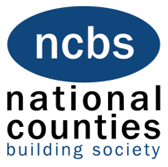WHISTLEBLOWING
- Corporate Information
- Annual General Meeting
- What Our Customers Say
- Our History
- Our Online Service
- How We Use Personal information
- Contact Us
- Careers Centre
- Complaints
- Bereavement help and support
- NCBS in the Community
- Whistleblowing
- Modern slavery and human trafficking statement
- Pension and Life Assurance Scheme
- Cyber Security
- Protecting Against Frauds and Scams
- Cookie and Privacy Policy
- Secure Messaging
- Secure Document Upload
The information you provide could prevent misconduct which could damage our reputation and/or performance. That’s why it’s really important that you raise any concerns. We welcome all disclosures and encourage you to make them.
We have provided some useful information to help you understand whistleblowing and whether this is the most appropriate route to raise your concern as there may be other, better suited options for you.
Click on the questions below for more information:
If you have reason to believe that one or more of the following circumstances applies:
- Criminal activity including fraud or theft
- Breaches of internal policies and procedures
- Breaches of regulatory or legal obligation (e.g. data protection law, competition law)
- Bribery or corruption (e.g. accepting incentives in return for giving business, or receiving benefit)
- A miscarriage of justice
- Damage to the environment
- Danger to health and safety of any individual
- Unauthorised disclosure of confidential information
- Negligence
- The deliberate concealment of any of the above matters
- Behaviour that can or could harm reputation or financial well-being of the Society such as concerns over:
- Miss-selling
- Treating customers fairly
- Money laundering
- Fitness and propriety
- Systems and controls
- Unauthorised business
The form allows you to choose whether to disclose your identity or not. We hope that you will feel able to voice whistleblowing concerns openly but if you want to raise your concern confidentially, we will make every effort to keep your identity a secret, unless disclosure is required by law.
If you chose to disclose anonymously, proper investigation may be more difficult or impossible if we cannot obtain further information from you. It is also difficult to establish whether allegations are credible. For this reason, it’s really important you include as much information as possible.
Please note that if you chose to make an anonymous disclosure, we will not be able to provide you with any feedback and any action to look into the disclosure could be limited as we won’t be able to ask for further information.
You should also understand that making an anonymous disclosure means it can be more difficult to qualify for protections as a whistleblower. This is because there would be no documentary evidence linking the worker to the disclosure for the employment tribunal to consider.
If those raising a concern are external individuals (i.e. one of our customers or a member of the general public) they will probably not be eligible to the statutory whistleblowing protections. This is due to the fact that the law only extends the legal protections to ‘employees’ and ‘workers’, as well as an extended group of other individuals who also fall within the definition of ‘worker’. Nonetheless, the Society will attempt to protect anyone who reports a concern to us, if made reasonably and in good faith.
If you want to understand more about the legal protections and who is covered, please visit the charity Protect which provides free confidential whistleblowing advice.
If you believe your concern falls under the section “when do I 'blow the whistle'?” and is not a general complaint please continue to the whistleblowing submission form.
